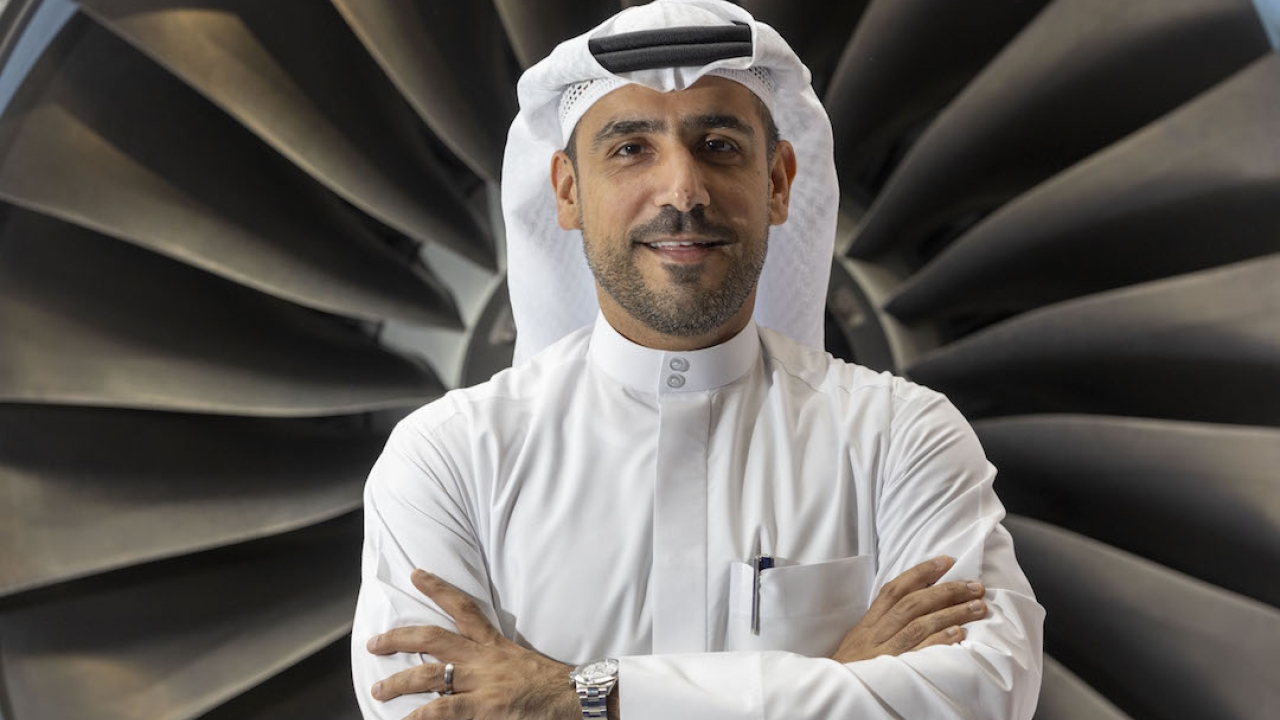Market offered a new lease of life
The leasing market offers MRO providers new opportunities as well as challenges: whether they benefit will depend on a company’s flexibility, expertise and customer service. Sami Ben-Kraiem of MTU Maintenance explains all to Chuck Grieve.

The future of MRO is inextricably linked to the aircraft leasing market. That’s the view of Sami Ben-Kraiem of MTU Maintenance… and he should know.
As vice-president marketing and sales across the Middle East and southeast Asia for the Hannover-based engine specialist, he’s been tracking the shift from owned fleets to leased fleets.
This regional market presents unique challenges to an MRO provider, Ben-Kraiem said. With a few exceptions, operators tend to be smaller than their counterparts in Europe or North America, with more variation in their fleets and lower average aircraft age, making long-term maintenance planning complicated.
“Airlines here are still in growth mode,” he said. “The number of aircraft on order is greater than the existing fleet.”
But, despite the overall fleet size, it’s a strong MRO market. For one thing, he said: “We see many more engine removals here, compared with other regions, driven by the harsh environment. This makes it attractive for MRO providers.”
Hot and sandy conditions lower the time on-wing of engines, but an experienced MRO, such as MTU, can maximise it. “We’ve accumulated a considerable level of knowhow and experience,” said Ben-Kraiem. “We know how to work on engines coming from this region; how to refurbish them so they are more reliable after a shop visit.”
MTU holds approvals on a range of popular medium and large commercial engines from OEMs including GE, Pratt & Whitney, IAE, Engine Alliance and CFMI. Its shops span the globe – and it is expanding everywhere, increasing capacity by around half in the next 10 years.
The Middle East market is moving away from the traditional approach of investing in aircraft toward leasing, which can make it easier to renew a fleet as and when the market requires. “Even flag-carriers recognise they need to look beyond purchasing aircraft and keeping them for life,” said Ben-Kraiem. “It’s more about having the right equipment. This changes the game. It automatically brings a third partner into the equation
“So we’re not only serving the airline operating the plan, but also the lessor, who owns it. In most cases, we’re helping both by making sure there’s a stable process across the lifecycle – a win-win-win situation that benefits everybody.”
By planning for returning the aircraft from the point of taking delivery, operators can minimise the “significant cost” of an end-of-lease refurbishment. “Because we understand end-of-lease requirements, we can advise what programme they require so they can return the equipment without the need for an extra shop visit at the end of the lease. And we guarantee that.”
This adds value to both operator and lessor who, when he sees an MTU tag on the engine, “feels comfortable that he can remarket the engine”.
MTU is increasingly focused on this area, said Ben-Kraiem.
The harsh Middle East operating environment shortens the intervals between services for engines as well as airframes. The increased frequency of engine removal, compared with European operations, forces airlines to carry a high ratio of spare engines.
“We see operators having 15-20 spares to serve one fleet – double what an operator might need in Europe,” said Ben-Kraiem.
“This is a significant number. Most of these engines have to be purchased. It’s a big cash commitment at the beginning of the fleet’s operation, which is a critical time for most airlines in the region.”
In response, MTU leveraged its own healthy financial position to join Sumitomo Corp of Japan in a joint venture to support airlines with financing of their spare engines. The company, Sumisho Aero Engine Leasing (SAEL), became a subsidiary of Sumitomo Mitsui Finance and Leasing (SMFL) in April after SMFL acquired 65% of its shares. Expansion of SAEL’s activities is planned.
Ben-Kraiem said the engine sale and leaseback option that SAEL offers customers has proven popular, even with large renowned carriers. MTU has a 10% share in the venture.
“We always take the MRO perspective,” he said. “If we can make a reasonable offer on the financing side to support an operator who enters into a long-term engine MRO relationship with us, then we are generating business for the company and supporting the customer as well.”
Working through SAEL and MTU Maintenance Lease Services, a further 80/20 joint venture with Sumitomo specialising in spare engine support and asset management, has given MTU its own unique outlook on leasing, he said. Where a lessor will typically focus on the lease transaction, MTU looks at the bigger maintenance-related picture. “That makes us behave in support of the lease with attractive rates.
“We think the future will go more and more in that direction. We see lessors increasingly as important business partners and customers; that’s why we’re looking to open new offices in Singapore and Dublin – so we can be close to the leasing community there.”
At the same time, he said, the company keeps close tabs on the needs of its MRO customers and airlines. A tangible result for the Middle East will be a new MTU Maintenance office in Dubai.
“We want to be here in the region to bring customer support closer to our customers; to be responsive to this dynamic and very demanding market,” said Ben-Kraiem. “Our commitment is to be where the market requires us.”
Stay up to date
Subscribe to the free Times Aerospace newsletter and receive the latest content every week. We'll never share your email address.

